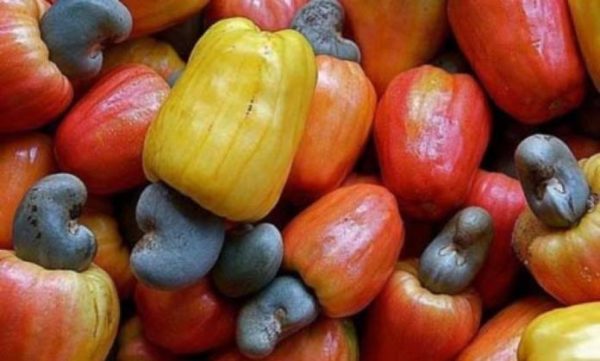While the cashew nut marketing campaign has just opened with promising yield prospects, the government is stepping up measures to limit the effects of Covid and boost processing, in accordance with its commitment made in 2016.
Officially launched on March 11 in Kétou, in the Plateau department, the cashew nut marketing campaign was marked by two contrasting news. On the upside, good prospects for returns thanks to a favorable climate – excellent news for the some 200,000 families who make a living from this sector. On the other side, a minimum price guaranteed to historically low producers: for this campaign, the kilo will be exchanged at the floor price of 300 FCFA, against 325 in the previous one. This decline is mainly explained by the impact of the Covid on the world consumption of cashew nuts and the slowdown in prospects for industrial growth, another consequence of a drop in demand.
An economic situation which also affected the performance of the sector: 170,000 tonnes were produced during the 2019-2020 marketing campaign. Of the 137,205 tonnes of raw cashew nuts weighed at the weighbridges, 11,035 tonnes were processed, ie a processing rate of 6.5%. “This low rate is due to the suspension of certain contracts during this period of Covid-19”, underlined the Minister of Industry and Trade, Shadiya Alimatou Assouman, during the launching ceremony of the 2020-2021 campaign, which was an opportunity to recall the government’s desire to promote the key sector of agriculture, which represents 25% of the GDP and employs 70% of the working population.
Efforts in favor of the sector
In fact, since 2016, special attention has been paid to the cashew sector, of which the country is the 8th largest producer in the world and which represents the 2nd export product after cotton. President Talon announced as part of the Government’s Action Plan his intention to double production by 2021 and focus on processing, which traditionally represents only 15% of national production. On February 11, the second edition of Benin Cashew Day was also an opportunity for the president of the Cashew Industry Interprofessional (Ifa), Edouard Assogba, to congratulate the government for its efforts in favor of the sector. Cashew production thus increased from 91,608 tonnes in 2015 to 130,276 in 2019, thanks to significant public investments in favor of agricultural sectors and a strategy concentrating resources on six priority sectors, including cashew, and creating seven agricultural development poles, each focused on high-potential cultivation in its area and supported by a regional agency. The creation of the Nursery Association, the establishment of service brigades, the creation of new cashew orchards and the establishment of the strategic watch committee are also part of this dynamic. Last year, the launch of a plan to strengthen the competitiveness of sectors (Pacofide) also provided for the renewal of 135,000 hectares of cashew plantations.
Under the combined effect of these initiatives, production has increased, but it remains less than half the target set for 2021. To keep to the 300,000 tonnes mark, farmers have been called upon to form associations or cooperatives to record production, but they are calling for more support, notably calling on the executive to structure the sectors and better protect them through fiscal measures.
Construction of a special economic zone
In addition to urging the players in the sector to be more rigorous and serious in the implementation of these various initiatives, the government has taken specific measures to compensate for the difficulties caused by the health crisis and by land exports, starting with the prohibition of the latter and the involvement of the Republican Police to ensure compliance with this measure and the texts in force.
On the processing side, to make up for the shortfall due to the export of raw raw materials, the executive is relying in particular on the construction of the Glo-Djigbé special economic zone, in partnership with the pan-African operator Arise Integrated Industrial Platforms (IIP ). With the official handover of the SEZ site to Arise IIP on February 5, a major project is set to take place in Abomey-Calavi, 45km from the capital Cotonou. Covering an area of 1,640 hectares, this industrial zone will include, among other things, around fifteen cashew nut processing units. The government is also investing in a plan to mechanize the sector in order to increase the productivity of farms. But, unlike the Ivo Coast



